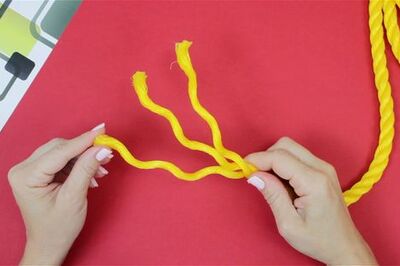
views
After the successful touchdown of NASA's InSight on Mars last week, new images from the lander show its robotic arm is ready to do some lifting. With a reach of nearly 6 feet (2 metres), the arm will be used to pick up science instruments from the lander's deck, gently setting them on the Martian surface at Elysium Planitia, the lava plain where InSight touched down on November 26. But first, the arm will use its Instrument Deployment Camera, located on its elbow, to take photos of the terrain in front of the lander, the space agency said in a statement on Thursday.
These images will help mission team members determine where to set InSight's seismometer and heat flow probe -- the only instruments ever to be robotically placed on the surface of another planet, it added. "Today we can see the first glimpses of our workspace," said Bruce Banerdt, the mission's principal investigator at NASA's Jet Propulsion Laboratory (JPL) in Pasadena, California.
"By early next week, we'll be imaging it in finer detail and creating a full mosaic." Another camera, called the Instrument Context Camera, is located under the lander's deck. It will also offer views of the workspace, though the view won't be as pretty. "We had a protective cover on the Instrument Context Camera, but somehow dust still managed to get onto the lens," said JPL's Tom Hoffman, InSight project manager.
"While this is unfortunate, it will not affect the role of the camera, which is to take images of the area in front of the lander where our instruments will eventually be placed." Over the past week and a half, mission engineers have been testing those instruments and spacecraft systems, ensuring they were in working order. More images from InSight's arm were scheduled to come down this past weekend. However, imaging was momentarily interrupted, resuming the following day.
Spacecraft engineers had already factored extra time into their estimates for instrument deployment to account for likely delays caused by faults. The mission's primary mission is scheduled for two Earth years, or one Mars year.



















Comments
0 comment